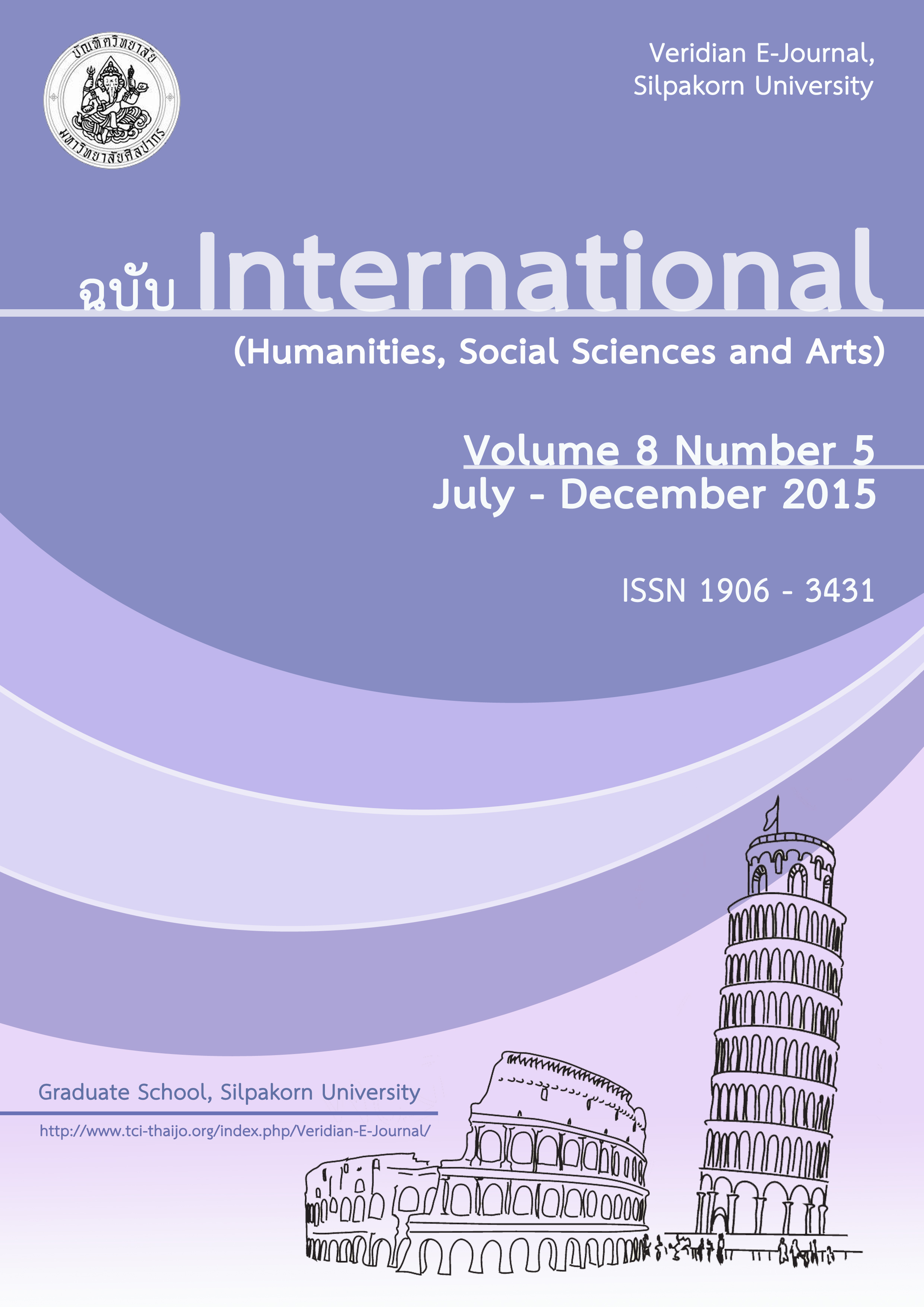The Development of the Learning Achievement in the Course Politics, Economy and Society Using CIPPA Model Instruction
Main Article Content
บทคัดย่อ
Abstract
The efficiency of the students’ performances is primarily dependent on the teachers’ instructional management. The roles of the teachers, therefore, involve the preparation of the academic contents, practical skills, instructional design, instructional materials, project models, activities and learner assessment and evaluation tools. This research and development study aimed to 1) analyze the instructional methods, materials and guidelines as well as learning activities based on the learner-centered CIPPA Model; and 2) compare the mean scores of the students’ learning achievement and their satisfaction before and after the implementation of the CIPPA Model in the instruction. This research study employing the CIPPA Model was combining the methods of qualitative research with quantitative and statistical research. The sample groups in the study were divided into 2 Independent Groups: 1) the Pre-Experimental Group; and 2) the Experimental Group who were instructed using the CIPPA Model. The research instruments comprised 1) learning achievement tests to be administered before and after the experiment; 2) aptitude tests to assess the students’ analytical thinking, communication skills and creativity; and 3) questionnaires to assess the students’ satisfaction towards the course Politics, Economy and Society.
The research findings could be summed up as follows:
1. The instruction based on the CIPPA Model enabled the students to take part in the learning activities physically, socially and emotionally, to understand the lessons, and to explain, elaborate and answer questions well.In addition, the thinking, analytical, team-working and communicative skills were enhanced, and the thirst for knowledge was encouraged, as reflected through the students’scores and performance reports as well as scenario-based activities which could evidently sum up the results of the instruction.
2. The students’ learning achievement after the CIPPA Model had been implemented was significantly higher than that before the experiment at the .05 level. It was found that the students’ mean score of the achievement test before theachievement test after the experiment was 65.33 ( =65.33). The mean score increased by 7.87 points, or 13.70%.
3. As for the students’ satisfaction towards the instruction, it was found that the students in the First Semester of the Academic Year 2013 was at the ‘High’ level ( =3.79). The satisfaction of the students in the First Semester of the Academic Year 2014 was at the ‘High’ level ( =4.20). In the Second Semester of the Academic Year 2014 when the CIPPA Model was implement, the students’ satisfaction was at the ‘Highest’ level (= 4.47).

